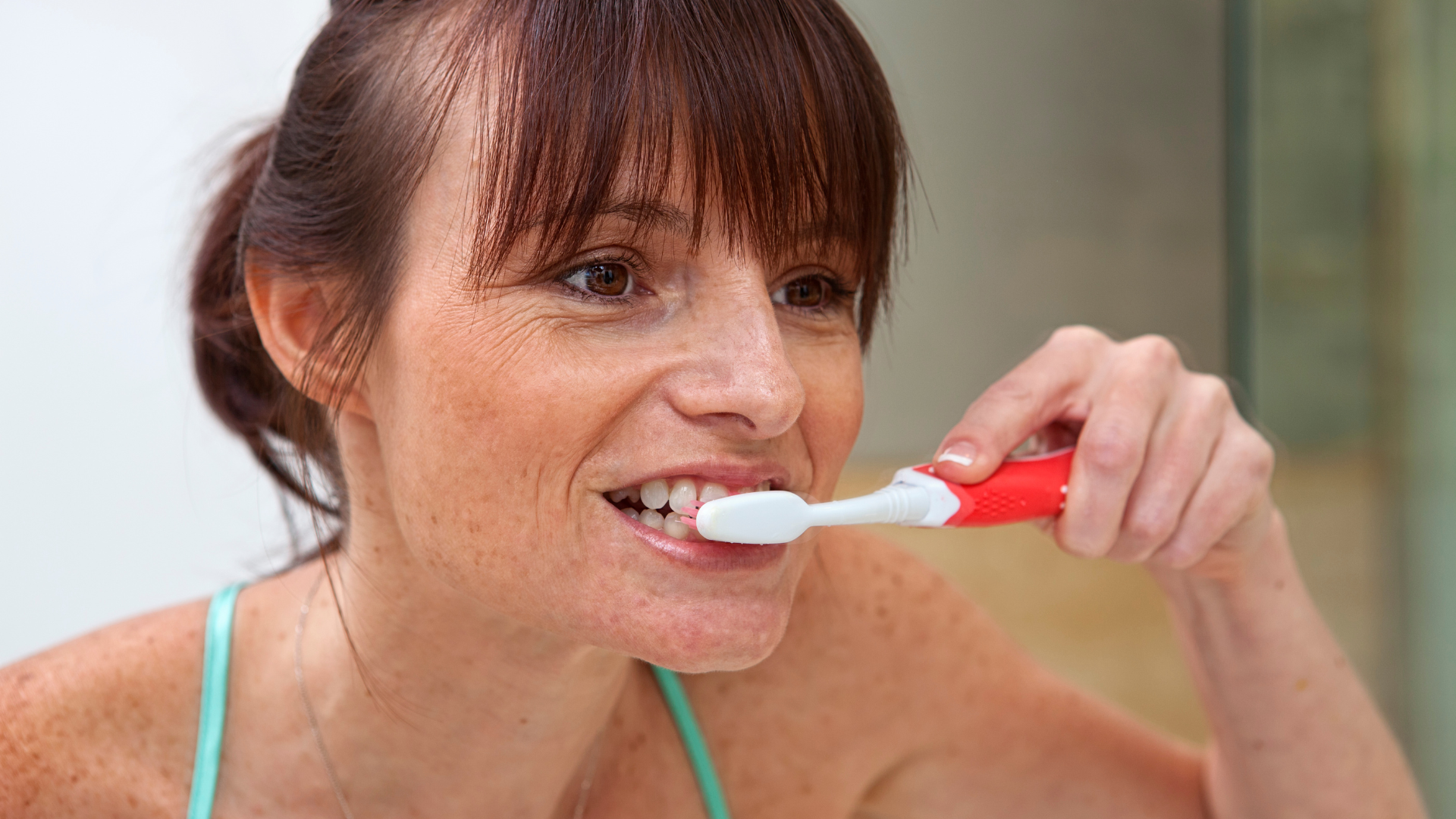
Many dental problems are caused by poor dental hygiene. Brushing your teeth twice a day and flossing daily helps remove plaque and bacteria that cause cavities and gum disease. Professional cleanings help remove tartar and plaque buildup, which can lead to problems such as gingivitis and periodontitis. However, these tips are only effective if you maintain good dental hygiene at home.
BRUSH YOUR TEETH TWICE A DAY FOR TWO MINUTES EACH TIME.
Brushing your teeth twice a day for two minutes each time is a tried-and-true dental routine that helps keep your teeth strong, as well as your gums. With consistent brushing, your teeth will be less likely to develop cavities, and your teeth and gums will be less susceptible to gum disease. Brushing your teeth as little as twice a day or as much as four times daily won’t make a difference to your dental health.
TAKE FLOSS DAILY AFTER YOUR TOOTHBRUSH.
Flossing daily is an important habit to get into. The action of flossing removes the food particles that get caught in between the teeth, causing plaque and cavities. However, it is not perfect. There are days when you just do not have the time, or energy, to floss. These days can cause plaque to build upon your teeth, which causes tooth decay. To avoid this, take floss and toothpaste with you wherever you need to go. Brush your teeth again with toothpaste. Then, carefully wrap the floss around all your teeth and gently slide the floss between the teeth. Use short movements, and glide the floss in between the teeth. Do not force the floss; just gently slide the floss between the teeth. Rinse your mouth with clean water once you have flossed all your teeth.
REPLACE YOUR TOOTHBRUSH.
It’s not fun, but replacing your toothbrush regularly is vital to your oral health. Ideally, you should replace your toothbrush every three to four months, even though it looks like it is in decent shape. One of the reasons could be its bristles which get blunt with time. Blunt bristles could be less effective at plaque removal. Hence, you should always remember to replace your brush on time. You can also look for quality toothbrushes that are affordable and help improve your oral health. In that case, an electric toothbrush could be one option since the rapidly oscillating brush head can get rid of dental plaque more easily and even clean hard-to-reach areas. You can look for products online and compare Sonicare toothbrush models from brands like Philips before making a purchase. This could make it easier for you to choose the best electric toothbrush according to your dental needs.
VISIT YOUR DENTIST EVERY SIX MONTHS.
Tooth decay and gum disease can affect your whole body and lead to poor health. It is the leading chronic disease in children, and it affects more than 90% of adults to some degree. If left unchecked, tooth decay can lead to tooth loss, pain, infection, and in severe cases, death. You don’t have to lose your teeth or suffer from gum disease, however. And the best way to ensure that is through regular dental visits. It is important to find a family dentist who is knowledgeable and experienced. Ask your friends and family for suggestions, or visit an online website like https://serphomeliving.com/dental/best/tennessee/goodlettsville/ to get an idea of who may be the best fit for you. While choosing one, remember that your dentist should be able to provide you with regular checkups, as well as preventive services and treatments to keep your teeth and gums healthy.
DON’T SMOKE.
Smoking doesn’t just damage your lungs and cardiovascular system. It can also damage your mouth, causing cavities, tooth loss, and even gum disease. Fortunately, it can reverse some of these problems, allowing you to get your smile back.
What Are the Most Common Misconceptions?
Most people assume that their teeth and gum problems will disappear once they reach adulthood. However, gum disease and tooth decay are still some of the most common diseases related to your oral health. Problems of such nature could lead to further complications, which is why dental extractions are often necessary to preserve the overall health of the mouth. Then there’s also the risk of accidents and fractures. When a gum line fracture occurs, the tooth becomes weakened and may eventually need to be extracted.
Also, fractured, chipped, cracked or broken teeth can be painful and affect the bite, making it difficult to eat or speak properly. Not to mention bacterial or fungal infections that could follow after the injury. Physical damage to teeth should be treated like an emergency and looked at by professionals providing emergency dental care in Denver (or similar locations worldwide) to avoid further problems. You could essentially prevent a nasty dental disease from affecting your oral health if you practice precaution and get timely help.
Additionally, a good rule of thumb is to avoid plaque, which accumulates in your mouth when the bacteria in your saliva create acids and irritate your gums and teeth. It can be removed by brushing your teeth twice a day and flossing regularly, so it’s important to make sure you do both every day.
It’s natural for healthy gums and teeth to look their best. But, as you age, sometimes your gums and teeth can lose some of that youthful sparkle. This is especially common if you neglect your oral hygiene routine, and it’s even more common if you have some habits that could contribute to the deterioration of your gums and teeth, like smoking or drinking too much coffee.
Five percent of us suffer from gum disease, and 90% of us have the disease without knowing it. The prognosis for gum disease is grim. It can lead to heart disease, diabetes, strokes, premature births, and a variety of other serious health issues. Thankfully, though, gum disease can be reversed with periodontal treatment.
Many dentists now believe that plaque and bacteria that adhere to your teeth can travel to other parts of your body and that gum disease can negatively impact your health. It has also been discovered that it can trigger problems like acid reflux, osteoporosis, and preterm labor. To avoid these issues, it’s critical that you maintain good dental hygiene habits.
Maintaining good oral hygiene is the key to a healthy smile-and keeping your teeth in good condition means they resist cavities and gum disease. Without proper oral hygiene, however, you’re at risk of developing these dental problems, and even if you’re diligent about brushing and flossing, you may still develop an infection.



